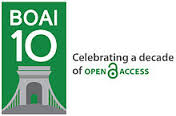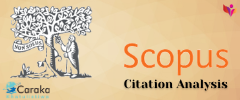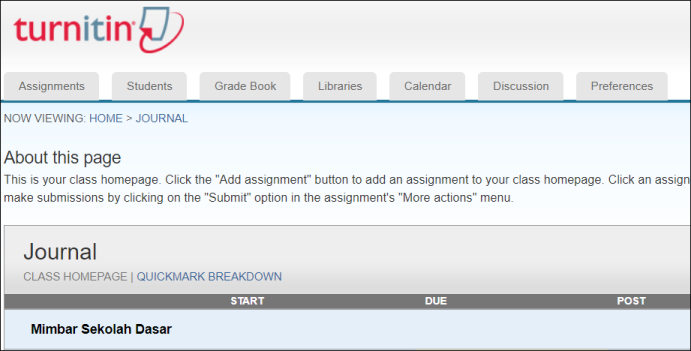- Focus and Scope
- Section Policies
- Peer Review Process
- Publication Frequency
- Open Access Policy
- Archiving
- Aims
- Authorship
- Publication Ethics and Malpractice Statement
- Copyright Notice
- Conflicts of Interest
- Correction or Retraction
- Complaints Process
- Plagiarism Screening
- Conference Publication Collaboration
- Waiver Policy
Focus and Scope
Mimbar Sekolah Dasar focuses on publishing research results in the area of primary education. To expand the studies, Mimbar Sekolah Dasar covers worldwide primary education studies and develops research topics into various scopes such as teaching and learning, curriculum and development, assessment and instruction, school management, educational counseling, educational policy, and STEM in primary education for universal audiences and international practices.
Section Policies
Original Research Articles
Review Articles
Developmental Research Articles
The 6th International Conference on Elementary Education (ICEE 2023)
Peer Review Process
There are three main steps in checking or reviewing the manuscript submitted by Mimbar Sekolah Dasar's contributors.
First Step:
The editor conducts the initial checking for plagiarism by Turnitin. The manuscript with 20% similarity and above will automatically be rejected. Meanwhile, the free-plagiarism manuscript or the similarity below or equal to 20% will proceed to the research design examination stage. The manuscript that presents good research designs will be immediately preceded to the stage of peer-review. On the contrary, the manuscript that does not present good research designs will be immediately rejected.
Second Step:
The editor distributes the manuscript to the reviewers. Double-Blind Peer Review is employed by Mimbar Sekolah Dasar. Therefore, before submitting it to the reviewers, the editor removes the author(s) identity, such as name, email, and affiliation. The reviewers examine the manuscript content using form review that has been provided on the journal website through a special login for the reviewers. They provide recommendations on the manuscript results for the editor in the type of decisions, namely the manuscript is accepted, revised, or rejected that must be accompanied with the reasons. If two reviewers provide different decisions, the editor will add one other reviewer as the supporter.
Third Step:
The editor sends the result of reviewers' reviews to the author(s). If the manuscript must be revised, but the author(s) does not revise and give a response, the manuscript will be rejected. On the other hand, if the manuscript is accepted, the author(s) must be willing to have their article proceeded to the final proofreading stage. If the revised manuscript still contains major revisions, it will be returned to the reviewers; if it contains minor revisions, the editor will check and decide the final decision. During the review process, there is no communication between the author(s) and the reviewers. The communication is only conducted between the editor and the author(s). For every decision made, the author(s) has the right to get clear rationalization.
In conducting the review process, the editors and reviewers refer to the COPE Ethical Guidelines for Peer Reviewers.
Publication Frequency
Starting in 2024, MSD publishes four issues per year in March, June, September, and December.
Open Access Policy
Mimbar Sekolah Dasar is open access journal which means that all content is freely available without charge to users or / institution. Users are allowed to read, download, copy, distribute, print, search, or link to full text articles in this journal without asking prior permission from the publisher or author. This is in accordance with Budapest Open Access Initiative.
Archiving
To secure Mimbar Sekolah Dasar archives, articles in the form of metadata and PDF are stored in several places, namely:
- Indonesia One Search by National Library
- Indonesian Scientific Journal Database
- Internet Archive
- Data Archiving and Networked Services (DANS)
If funding is adequate, Mimbar Sekolah Dasar aims at employing digital preservation services of CLOCKSS or PORTICO.
Aims
Mimbar Sekolah Dasar aims to open international scientific forums related to the issues and the knowledge development of primary education topics. Various research results, innovation, and essential findings in worldwide primary education are thoroughly exposed and conversed in this Journal.
Authorship
The author(s) and the contributor(s) who are willing to submit their article to Mimbar Sekolah Dasar must fulfill the following four criteria:
(1) Providing the exemplary research designs presentation;
(2) Having excellence in data analysis and interpretation, developing good concepts and theories, and presenting state-of-the-art to guide future research;
(3) Willing to follow the review process until the editor decides whether the article is accepted or rejected;
(4) Following the publication ethics and agreeing on all of the rules or policies applied by Mimbar Sekolah Dasar.
Publication Ethics and Malpractice Statement
[Based on Elsevier recommendations and COPE's Best Practice Guidelines for Journal Editors]
MSD has been approved for COPE Membership
Ethical Guidelines for Journal Publication
The publication of an article in the peer-reviewed journals published by Elementary Teacher Education Program, Indonesia University of Education, Sumedang Campus is the process of permanent knowledge improvement. It is a direct reflection of the quality of the authors' work and the institutions that support them. Peer-reviewed articles support and embody the scientific method. It is therefore important to agree upon standards of expected ethical behavior for all parties involved in the act of publishing: the author, the journal editor, the peer reviewer, the publisher, and the society of society-owned or sponsored journals.
Elementary Teacher Education Program, Indonesia University of Education, Sumedang Campus takes their guardianship duties over all stages of publishing extremely seriously, and we recognize our ethical and other responsibilities.
We are committed to ensuring that advertising, reprint, or other commercial revenue has no impact or influence on editorial decisions. In addition, Editorial Board will assist in communications with other journals and/or publishers where this is useful to editors.
Duties of Authors
Reporting standards
Authors of reports of original research should present an accurate account of the work performed as well as an objective discussion of its significance. Underlying data should be represented accurately in the paper. A paper should contain sufficient detail and references to permit others to replicate the work. Fraudulent or knowingly inaccurate statements constitute unethical behavior and are unacceptable. Review and professional publication articles should also be accurate and objective, and editorial 'opinion' works should be clearly identified as such.
Data access and retention
Authors may be asked to provide the raw data in connection with a paper for editorial review and should, in any event, be prepared to retain such data for a reasonable time after publication.
Originality and plagiarism
The authors should ensure that they have written entirely original works, and if the authors have used the work and/or words of others, this has been appropriately cited or quoted. Plagiarism takes many forms, from 'passing off' another's paper as the author's own paper, copying or paraphrasing substantial parts of another's paper (without attribution), claiming results from research conducted by others. Plagiarism in all its forms constitutes unethical publishing behavior and is unacceptable.
Multiple, redundant or concurrent publication
An author should not, in general, publish manuscripts describing essentially the same research in more than one journal or primary publication. Submitting the same manuscript to more than one journal concurrently constitutes unethical publishing behavior and is unacceptable. In general, an author should not submit for consideration in another journal a previously published paper.
Acknowledgment of sources
Proper acknowledgment of the work of others must always be given. Authors should cite publications that have been influential in determining the nature of the reported work. Information obtained privately, as in conversation, correspondence, or discussion with third parties, must not be used or reported without explicit, written permission from the source. Information obtained in the course of confidential services, such as refereeing manuscripts or grant applications, must not be used without the explicit written permission of the author of the work involved in these services.
Authorship of the paper
Authorship should be limited to those who have made a significant contribution to the conception, design, execution, or interpretation of the reported study. All those who have made significant contributions should be listed as co-authors. Where there are others who have participated in certain substantive aspects of the research project, they should be acknowledged or listed as contributors. The corresponding author should ensure that all co-authors have seen and approved the final version of the paper and have agreed to its submission for publication.
Hazards and human or animal subjects
If the work involves chemicals, procedures, or equipment that have any unusual hazards inherent in their use, the author must clearly identify these in the manuscript. If the work involves the use of animal or human subjects, the author should ensure that the manuscript contains a statement that all procedures were performed in compliance with relevant laws and institutional guidelines and that the appropriate institutional committee(s) has approved them. Authors should include a statement in the manuscript that informed consent was obtained for experimentation with human subjects. The privacy rights of human subjects must always be observed.
Disclosure and conflicts of interest
All authors should disclose in their manuscript any financial or other substantive conflicts of interest that might be construed to influence the results or interpretation of their manuscript. All sources of financial support for the project should be disclosed. Examples of potential conflicts of interest which should be disclosed include employment, consultancies, stock ownership, honoraria, paid expert testimony, patent applications/registrations, and grants or other funding. Potential conflicts of interest should be disclosed at the earliest stage possible.
Fundamental errors in published works
When an author discovers a significant error or inaccuracy in his/her own published work, it is the author's obligation to promptly notify the journal editor or publisher and cooperate with the editor to retract or correct the paper. If the editor or the publisher learns from a third party that a published work contains a significant error, it is the obligation of the author to promptly retract or correct the paper or provide evidence to the editor of the correctness of the original paper.
Duties of Editors
Publication decisions
The editor of a peer-reviewed journal is responsible for deciding which of the articles submitted to the journal should be published, often working in conjunction with the relevant society (for society-owned or sponsored journals). The validation of the work in question and its importance to researchers and readers must always drive such decisions. The editor may be guided by the policies of the journal's editorial board and constrained by such legal requirements as shall then be in force regarding libel, copyright infringement, and plagiarism. The editor may confer with other editors or reviewers (or society officers) in making this decision.
Fair play
An editor should evaluate manuscripts for their intellectual content without regard to race, gender, sexual orientation, religious belief, ethnic origin, citizenship, or political philosophy of the authors.
Confidentiality
The editor and any editorial staff must not disclose any information about a submitted manuscript to anyone other than the corresponding author, reviewers, potential reviewers, other editorial advisers, and the publisher, as appropriate.
Disclosure and conflicts of interest
Unpublished materials disclosed in a submitted manuscript must not be used in an editor's own research without the express written consent of the author. Privileged information or ideas obtained through peer review must be kept confidential and not used for personal advantage. Editors should recuse themselves (i.e., should ask a co-editor, associate editor, or other members of the editorial board instead to review and consider) from considering manuscripts in which they have conflicts of interest resulting from competitive, collaborative, or other relationships or connections with any of the authors, companies, or (possibly) institutions connected to the papers. Editors should require all contributors to disclose relevant competing interests and publish corrections if competing interests.
Copyright Notice
- The journal holds the copyright for each article published with work licensed simultaneously under the Creative Commons Attribution-ShareAlike 4.0 International License, which allows others to share the work with an acknowledgment of the authorship and early publication of the work in this journal.
- Authors must agree to the copyright transfer agreement by checking the copyright notice column at the initial stage when submitting the article.
Conflicts of Interest
Editor, reviewer, and journal staff are welcomed to send their manuscript to Mimbar Sekolah Dasar with a limited amount. However, in order to keep the review fair, the review and the decision process of the manuscript is going to be conducted by guest editor and guest reviewer who are not a member of the editorial board. All editors and reviewers listed on Mimbar Sekolah Dasar journal website are not involved in the decision-making process of the manuscript created by Mimbar Sekolah Dasar editors or reviewers. The selected guest editor and reviewer are those who have academic qualifications and expertise based on the submitted manuscript content and required to review it based on the COPE Ethical Guidelines for Peer Reviewers. Invitation to be a guest editor is sent by the editor-in-chief and invitation to be a guest reviewer is issued by a guest editor.
Correction or Retraction
If there is an error(s), the article that has been published in Mimbar Sekolah Dasar can be corrected and retracted with the statement from the author(s) and the approval from the editor. There are two types of corrections: major correction and minor correction. The article will be replaced with the corrected version of the article, both in large and small scales. Major correction must be accompanied by the statement of the author(s). Meanwhile, if there are ’fatal’ findings, e.g. data forgery and plagiarism, the retraction of the article will be carried out by following COPE Retraction Guidelines.
Complaints Process
Mimbar Sekolah Dasar is aware of the following conflicts that might occur during publication process: (1) authorship, (2) copyright, (3) plagiarism, (4) data manipulation, (5) errors in presenting or calculating statistical data calculations, and (6) violation of publication ethics.
The complaints can be directly emailed to mimbar.sd[at]upi.edu with the matters being complained about (including the journal issues, volume, and the article number). Editor will respond as quickly as possible and will conduct further investigation on the problem, which will be carried out in accordance with the publication ethics. The investigation result of a certain article may end up merely verification, correction, or retraction after careful consideration.
Plagiarism Screening
The editor board determined that all manuscripts submitted to Mimbar Sekolah Dasar journal must be free from plagiarism contents. All manuscripts will be checked for its originality and the percentage of its similarity before the review process is carried out. The manuscripts that have a percentage of similarity content below or equivalent to 20% will be forwarded for processing by the reviewers. Meanwhile, for the manuscripts that have a percentage of content similarity above 20% will instantly be rejected. The editors of Mimbar Sekolah Dasar journal check the plagiarism detection of the articles in this journal by using a Turnitin software.
Conference Publication Collaboration
Mimbar Sekolah Dasar (MSD) receives the publication collaboration for International conference papers. The compulsory requirements that should be fulfilled are:
1) Paper has been selected and reviewed by the committee/editor/ conference reviewer/and is willing to follow the review processes by the journal editor and reviewer. The decision to accept or reject the paper is executed by the journal editor.
2) Paper content follows scientific principles and has novelty.
3) Willing to follow MSD template.
4) The author whose paper is accepted for publication in MSD is subjected to pay the paper processing charges.
The MSD regular issue is published in 5 to 15 papers per issue. MSD will also publish special issues for a total of 16 to 25 papers received.
If you are interested in collaborating with MSD to publish your existing International conference papers, please contact the Editor in Chief via e-mail: mimbar.sd[at]upi.edu, and fill in the following form [CPC Form].
Waiver Policy
We greatly appreciate the interest in the publication of high-quality article writers. Therefore, we do not want the costs to be a barrier to the process of publishing high-quality articles, especially for the authors who have difficulty in paying the publication fees. We apply a policy to free the author from publication fees with the following conditions: (1) the article submitted is of high quality and has a contribution in the field of study based on the assessment of the editorial board; (2) articles are written in good English; (3) the author makes a proposal for a fee waiver addressed to the editor via e-mail mimbar.sd [at] upi.edu.


.png)

.png)

